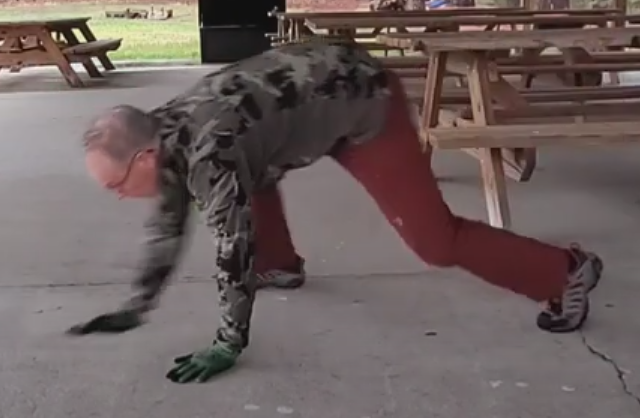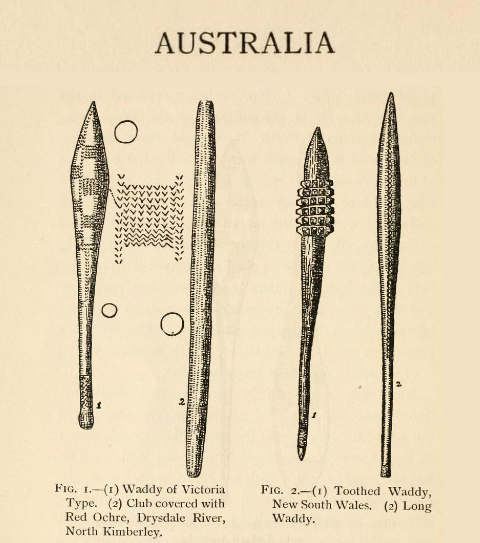Click here to sign up for daily motivational text messages!
...
Click here to sign up for daily motivational text messages! ...
Mettle Maker #395
What’s the weekly mettle maker? Training tips and educational information in support of our free programs, that’s what! What’s mettle? According the American Heritage Dictionary, mettle is, “The ability to meet a challenge or persevere under demanding circumstances; determination or resolve.”
Heritage Self-Defense: The Top Saddle escape series is complete! Do you have more than one method for escaping Top Saddle a.k.a. “mount?” You better! The most recent video is up (see right) and here are all the links:
Part 1: https://youtu.be/y5WJHn3whIk
Part 2: https://youtu.be/sHDr9n-hRKQ
Part 3: https://youtu.be/Gv6V2P7Rf_4
Part 4: https://youtu.be/zgYAzNPKUx8
Part 5: https://youtu.be/NF1Ayy35hZ0
But don’t just watch them — train them!
Interested in American Rough and Tumble martial arts with a spiritual center? Join the martial arts club in Richmond, VA or click here to sign up for the Heritage self-defense distance learning program.
Heritage Fitness: Whole-body exercise par excellence: Bear Walks! The humble Bear Walk — simple, no equipment needed, as old as time — what’s not to love?
Works the entire body in unison
Requires unified coordination
Aerobically demanding
At least once per month, add a hundred yards of Bear Walks to a training session. Need a free fitness coach to help develop an old-school fitness program that suits your specific needs and goals? Click here to sign up for one of our free programs!
(Photo taken from Weapons and Implements of Savage Races (Australasia, Oceania, and Africa) by Montague, Leopold A. D (London, The Bazaar, Exchange & Mart" Office 1921)
Heritage Wildwood Outdoor Skills: Throwing sticks for survival. If you’re in a survival situation you have to appreciate the simplicity and elegance of the throwing stick. It requires virtually zero skill to craft one — you might even be able to just pick one up off the ground. They are virtually unbreakable, and if you lose it you can find or fashion another easily. To be clear though, hunting small mammals with a throwing stick is even harder than it seems. Throwing sticks work best against flocks of birds and schools of fish (in shallow water of course). If the critters are on the move, direct a leading throw for the middle of the flock or school in the area they are about to be occupying, not where they are at the moment. When hunting stationary birds, aim at the area just above them, as the birds are likely to be spooked by your movement and/or the sound of the whooshing stick, and take flight. And by the way, you should also practice. Looking for a free adult outdoor skills program? Click here to sign up!
Holy Communion is LIVE on YouTube every Sunday at 10 am EASTERn. Click HERE to watch live. To view and print a copy of the program for holy communion, CLICK HERE.
Homily for the Third Sunday of Lent, 3/3/24 – Father Mitch
Readings: Ex 20:1-17, Ps19:8, 9, 10, 11, 1 Cor 1:22-25, Jn 2:13-25
John 2:13-25
The Passover of the Jews was at hand, and Jesus went up to Jerusalem. 14 He found in the temple those who sold oxen, sheep, and doves, and the changers of money sitting. 15 He made a whip of cords and drove all out of the temple, both the sheep and the oxen; and he poured out the changers’ money and overthrew their tables. 16 To those who sold the doves, he said, “Take these things out of here! Don’t make my Father’s house a marketplace!” 17 His disciples remembered that it was written, “Zeal for your house will eat me up.”*
18 The Jews therefore answered him, “What sign do you show us, seeing that you do these things?”
19 Jesus answered them, “Destroy this temple, and in three days I will raise it up.”
20 The Jews therefore said, “It took forty-six years to build this temple! Will you raise it up in three days?” 21 But he spoke of the temple of his body. 22 When therefore he was raised from the dead, his disciples remembered that he said this, and they believed the Scripture and the word which Jesus had said.
23 Now when he was in Jerusalem at the Passover, during the feast, many believed in his name, observing his signs which he did. 24 But Jesus didn’t entrust himself to them, because he knew everyone, 25 and because he didn’t need for anyone to testify concerning man; for he himself knew what was in man.
Bible stories are very sparing with their words. They expect us to fill in the blanks. To have a sense of what is really happening in the cleansing of the temple, I want you to imagine going down to the local flea market, turning over the vendor’s tables, and ordering them all out. What do you suppose would happen? Would they all go? Of course not. A half dozen, belligerent and angry vendors would throw you out on your ear. Some of them might even jab a pistol in your face.
Keeping in mind that people in Jesus’ time were far less soft and tame than modern folks, you can imagine that this event sparked far more than just spirited debate. Jesus really started something here, an altercation bordering on a riot, so serious that the Gospel says they challenged him to produce a sign to justify his actions. The situation was so serious that it was going to take a miracle to calm it down. Based on his reply, they may even said something like, “Look here Jesus, you better give us a sign from heaven or we’re going to kill you.” That would explain why he responds, “Destroy this temple, and in three days I will raise it up.” It’s as if he’s saying, “Go ahead and kill me, and I’ll show you what happens.”
What point could Jesus find so vitally important that he’d brandish a whip or a coil of rope and start an aggressive confrontation? St. Paul knew what it was, and he expresses his insight in our epistle reading today. He says, “For Jews ask for signs, Greeks seek after wisdom, but we preach Christ crucified, a stumbling block to Jews and foolishness to Greeks, but to those who are called, both Jews and Greeks, Christ is the power of God and the wisdom of God.” (1 Cor 1:22-24). Let’s not read this narrowly, as if it applies Jews and Greeks. Jew and Greek represent ways of thinking, not ethnic groups.
Many people have a transactional way of thinking that resembles the Jews of Jesus’ day. For them, relationship with God is a sacrifice-reward, pray-miracle kind of give-and-take. This type of outlook is as common today as then. It’s the basis of the so-called “prosperity gospel” in which people believe they can pray their way to material wealth or buy their way into heaven. And, on the other hand, there are always going to be folks who think the Greek way – those who want God’s ways to be man’s ways. They want God to serve man rather than the reverse. They demand logic, rationality, and common sense. They deny God on scientific grounds, because of philosophical the Problem of Evil, or because miracles are silly.
But Jesus literally “turns the tables” on both of those viewpoints. We can’t buy our way into the Kingdom of God with sacrifices, tithes, donations, prayers, or good works. Nor can we think our way in, with logic, philosophy, or common sense. Jesus chases out all of the old ideas about sacrificing oxen, sheep, and doves, and overturns the modern idols of rationalism and the worship of science.
Jesus bursts onto the scene and causes a huge uproar. He goes to the brink of violence to proclaim something of vital importance – the thing nobody wants to hear – a stumbling block for all. That the Son of God has come to earth to save us from sin and death. That he died on a cross and rose from the dead. And the only way the Kingdom of God is through him.
*2:17 Psalms 69:9

